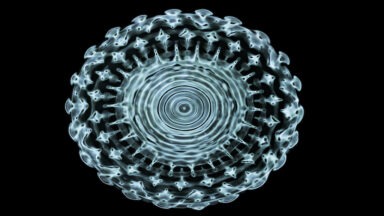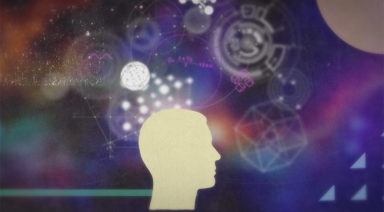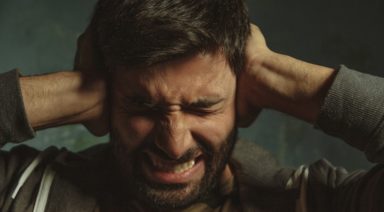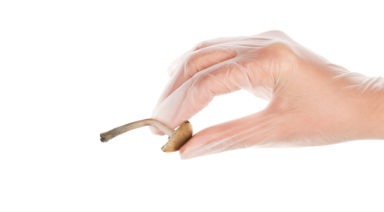Strongest Psychedelic Known to Man Now Being Used in Clinical Trials

The world’s first regulated clinical trial of DMT clears the way for Earth’s most powerful psychoactive drug to join the psychedelic therapy revolution.
DMT, or N, N-Dimethyltryptamine, is a highly potent hallucinogen that naturally occurs in many plant species, including in one of the plant ingredients of ayahuasca. It can also be synthetically produced in a laboratory.
DMT is known for inducing intense metaphysical trips, which are reportedly similar to near-death experiences. Having been used underground in the west for decades, it is now attracting the interest of pharmaceutical companies and scientists looking to investigate its potential mental health benefits.
Jay Waxenberg is the director of the DMTx program at the Center for Medicinal Mindfulness. Based in Boulder, CO, it was one of the first centers to offer legal psychedelic therapy in the U.S.
“DMT is actually the most powerful psychedelic on Earth that we’re aware of, and what makes it special and different from other psychedelics is that it’s endogenous, which means it’s produced within our own bodies. It’s also produced in nearly every ecosystem on Earth — it’s everywhere, it’s all around us – which is also kind of leading to what is really unique about it, the extent of a DMT experience, it’s at most 20 minutes,” Waxenberg said.
While there is a wide range of phenomena experienced during a DMT trip, there are some fascinating common hallmarks.
“This alternate reality experience, or this experience that people will call ‘realer than real.’ It’s a reality similar to our own, but completely different,” Waxenberg said. “Some of the elements within that would be the entity encounters, which is very common for people; intense geometric, hyperbolic shapes; and out-of-body, traveling to the center of the universe; ego-dissolution, ego death; these are really common experiences under it.”
While advocates have been reporting profound healing benefits for decades, there have not been any clinical studies on DMT due to its status as a Schedule 1 controlled substance, until now.
Canadian pharmaceutical company small pharma recently completed the first clinical trial of DMT-assisted therapy. The trial was Phase 1, meaning it established the safety and feasibility of studying the psychedelic in this way.
Small pharma is now moving into Phase 2 trials involving patients with Major Depressive Disorder. Practitioners like Waxenberg have high hopes that the studies will bear out DMT’s great potential for addressing psychological issues.
“If somebody has an ego death, or somebody leaves their body, there’s this feeling of expansiveness that comes with that; a feeling of not feeling trapped in your life. So, if you’re in depression, or anxiety, or thought-loop patterns, or anything like this, often that’s the benefit — to break yourself out of those cycles, to break yourself out of those loops or thought patterns. In the dying process, people who are getting terminal diagnoses, that’s where the most benefit can come because it’s an instantaneous removal of the ego and out of your body to go into that space; experiences that take them right into what they believe the afterlife process will be or what they believe the death process will be — and really watching that be nourishing and supportive of, ‘Ok, this is maybe something I can actually go toward,’” Waxenberg said.
“Also, it’s going to have really big benefits toward treatment-resistant depression. Like ketamine, it’s this out-of-body experience that alone can help reset the nervous system, reset what your baseline is of happiness or wellness, it can get totally reset just like that.”
Many in the psychedelic therapy world will be watching closely for the results of the coming DMT-assisted therapy trials.
“My hope is to just keep opening the door wider and wider, as we bring more and more people into the space, more and more people into the conversation to see what these substances can do. And really within this meta-crisis, we find ourselves in culturally, I think DMT is an answer to a lot of those questions; how can we really see a different angle to the problems that we face?”
Is Psychedelic Tourism Destroying the Sanctity of Plant Medicine?
As psychedelic healing and plant medicine go more mainstream, luxury psychedelic tourism is on the rise—good news for the spread of this medicine, but how might over-commercialism affect this sacred practice?
A recent Bloomberg article highlights the rise in all-inclusive psychedelic retreats. Indigenous plant medicine has been around for centuries, and its health benefits have been scientifically demonstrated, but as it gains mainstream acceptance and finds a bigger audience, some only see dollar signs.
Bloomberg reports, “according to Data Bridge Market Research the psychedelic market is expected to grow from $3.8 billion in 2020 to $10.7 billion by 2027.”
With the potential to make a lot of money, could some unscrupulous companies capitalize on this trend and remove the sanctity of this practice?
Carlos Tanner is the director of The Ayahuasca Foundation in Peru, he founded the center in 2009 as the result of his own healing journey. “When I started our retreat center, The Ayahuasca Foundation, I was coming off of a seven-year study myself; a four-year apprenticeship where I lived with a curandero and several years after that of studying with other teachers,” Tanner said.
“For most people that were starting centers at that time—which wasn’t many—you were a student first, and eventually after years of study, you came to the point where you wanted to offer this to people from outside of the culture. Now we see people who don’t have very much experience at all, but yet they’re opening a healing center.”
As this budding industry is dealing with rapid growth, there are some complicated issues regarding its increased popularity.
“When it comes to the commercialization of substances that have an ancestral background I would say that it is a delicate situation, and I hope that there would be a benefit to those indigenous populations from which those traditions were orignated. But at the same time, I know many indigenous people and they are for the spreading of what they believe to be their culture, which oftentimes was something that was looked upon negatively or was degraded as if they were second-class citizens, quite literally,” Tanner said.
“But now having people from the Western world, from the modern world, want to learn or experience elements of their culture, I think gives them a sense of pride. So it’s a complex question, to say the least.”



































